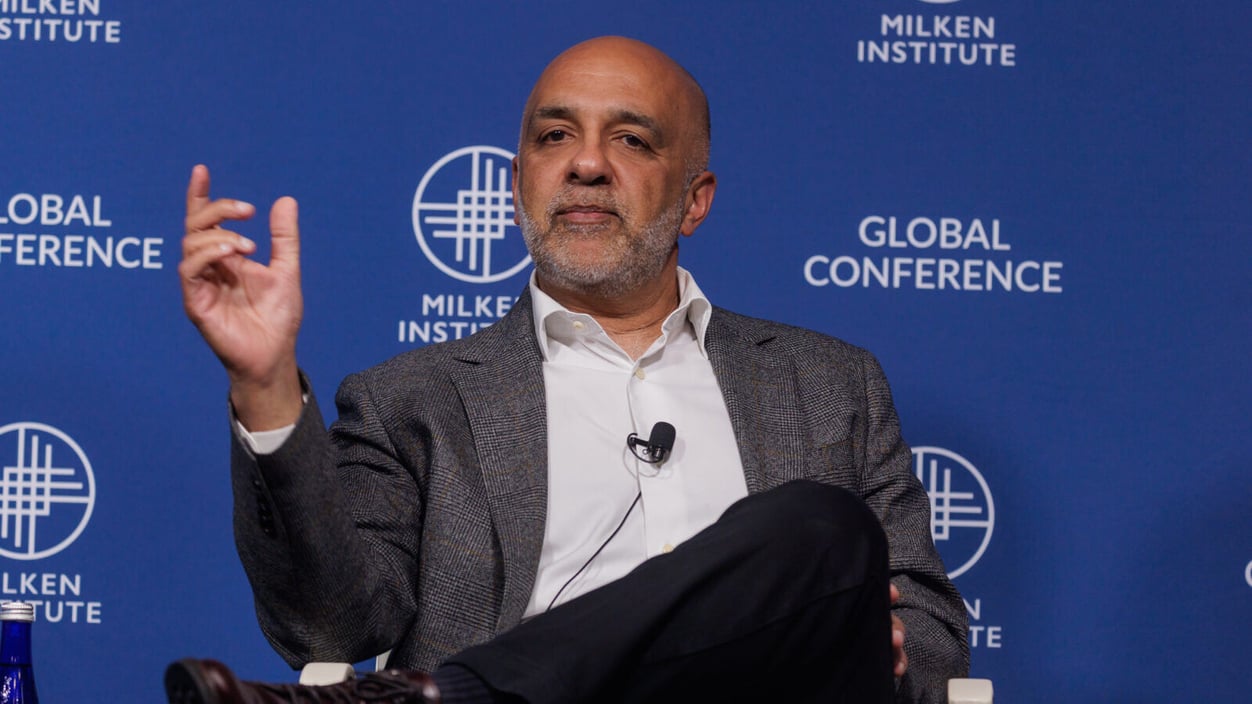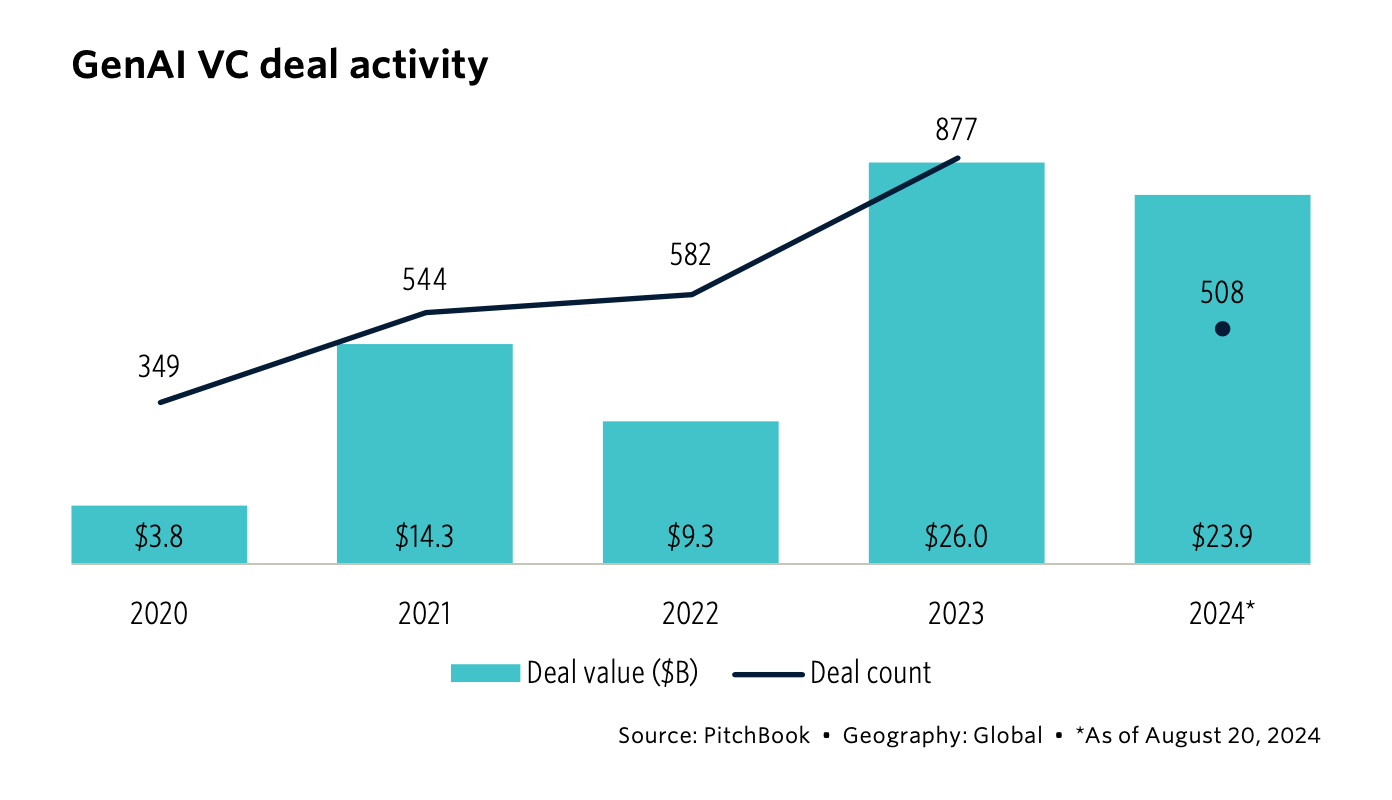profiles
Micky Tripathi has one of the toughest jobs in D.C.
 (Photo courtesy of Milken Institute)
(Photo courtesy of Milken Institute)
If you've been at any health tech-related gathering across the country recently, chances are you've spotted Micky Tripathi, the federal government's top health IT official, trotting out slide decks on the scope of his role in Washington and taking questions from industry on data frameworks like TEFCA. Late last month, my colleagues and I counted at least four public appearances in the span of a week.
Thanks to a Health and Human Services Department re-org, these days Tripathi's coordinating more than just health IT and data standards: Now, he's overseeing HHS' AI strategy and corralling disparate agencies, from the National Institutes of Health, which invest in AI research, to the Food and Drug Administration, which regulates software as a medical device, to work together. Read more about Tripathi and how he thinks about the enormous task ahead — as he tells me, "coffee, Diet Coke, and adrenaline."
Q&As
Why medical AI and value-based care may be made for each other
The health tech desk has a couple timely Q&As for you this week. Katie Palmer spoke with Stanford professor James Zou, who's been looking into clinical adoption of medical devices equipped with AI technology. Just a tiny sliver of FDA-authorized devices, he's found, are being reimbursed at any scale."There's almost a thousand medical devices now that have been approved or cleared by the FDA, and many of these came in the last few years," he told Katie. "But in our analysis, we saw that only a handful — essentially four — have seen substantial adoption, at least as measured by reimbursements from insurance companies." Read more.
MedStar Health's Raj Ratwani on guardrails for health AI
Speaking of regulation, Brittany Trang sat down with MedStar's vice president of scientific affairs Raj Ratwani, who says he sits firmly in between the two camps he sees emerging in the raging debate over how best to regulate AI. One, he says, favors a network of health assurance labs to conduct quality control tests, like that proposed by the Coalition for Health AI; another argues that such a federation incurs inherent inequities.
"A potential model would be something like a general certification process for AI systems — something like what CHAI is working on — and in addition to that, some local testing and evaluation [where], especially for under-resourced facilities, there's resource support for conducting that testing," he told Brittany. "We have to bring both of those ideas together and we have to make sure that whatever process that we develop there is really going to be a process that serves all." Read more.
exclusive
Abridge unveils new research collaborative with Epic, Stanford
In an announcement shared exclusively with STAT, ambient documentation darling Abridge says it's launching a new research effort to examine the technology's impact on five dimensions: "clinician experience, patient experience, healthcare costs, outcomes, and health equity."
The so-called Abridge Research Collective's first steering committee co-chairs are its own chief clinical officer Tina Shah and Yale New Haven Health System's chief digital health officer Lee Schwamm; members include the University of Chicago's Vineet Arora; Epic's chief medical officer Jackie Gerhart, and Stanford School of Medicine associate dean Tait Shanafelt, among others.
The group is "positioned to be an accelerator for research efforts" that could change the way health care's delivered, Schwamm said in a statement. "Deeper understanding of the structure and content of medical conversations will generate fresh insights into the patient journey that may ultimately lead to improved health outcomes."
Electronic health records
Epic Systems has been challenged in court before, but it's different this time
Also on Epic, Casey Ross delves into the implications of an antitrust lawsuit filed against the health records behemoth by upstart health data company Particle Health. It's a rare direct threat to Epic's dominance in the patient data market, legal and health policy experts said. "It represents what I predict will be a growth area for litigation: battles between the data 'haves' and the 'have-nots,'" Michelle Mello, professor of law and health policy at Stanford University told Casey. Interestingly, Epic has called on health data exchange Carequality to share more about its patient privacy dispute with Particle publicly. Read more from Casey.
Venture Capital
Is generative AI really taking off in health care?

A new report from venture capital research firm
Pitchbook suggests that while the technology's taken hold in drug discovery and development, it's been less impactful in applications like clinical trials, especially because of regulatory hurdles. And "we have not yet seen widespread adoption of GenAI into patient-facing digital health platforms," senior analyst
Aaron DeGagne wrote in the report. Still, generative AI seems ripe to transform a handful of digital health services, chiefly "care search and navigation, virtual musculoskeletal (MSK) care, and mental health care delivery," DeGagne writes.
Read more.


No comments